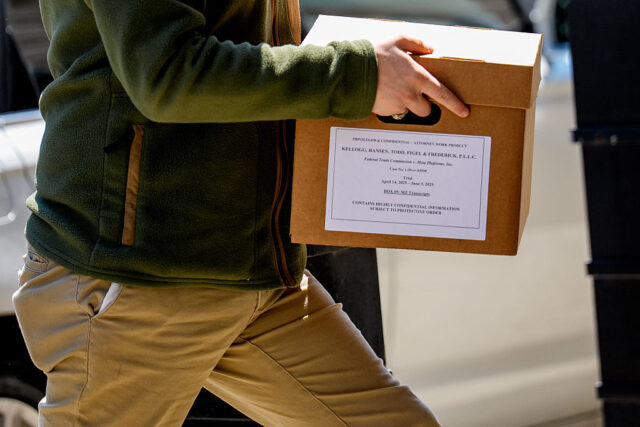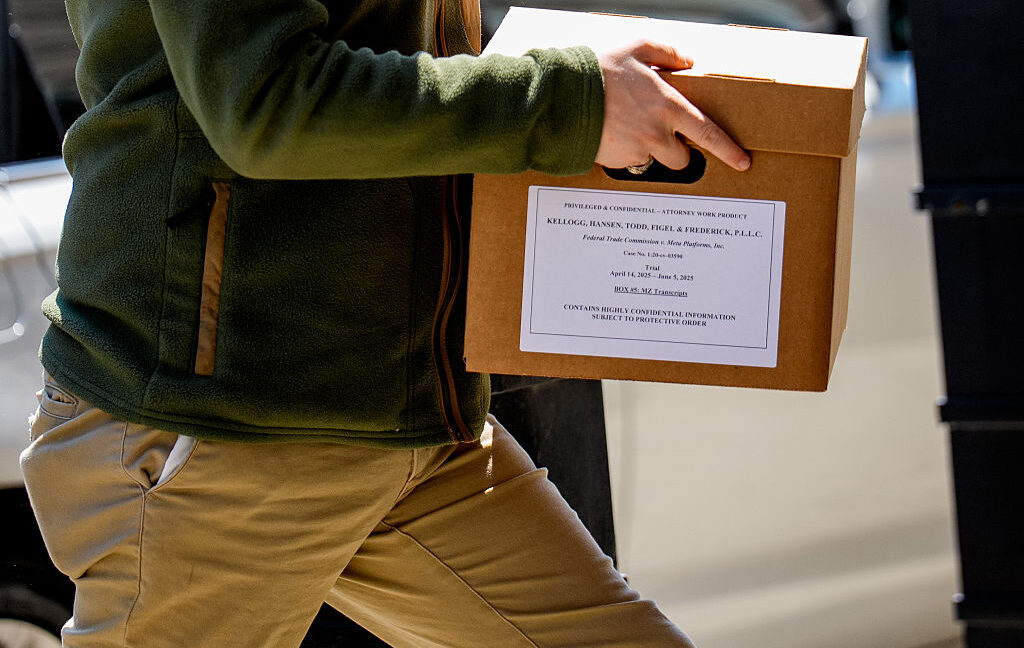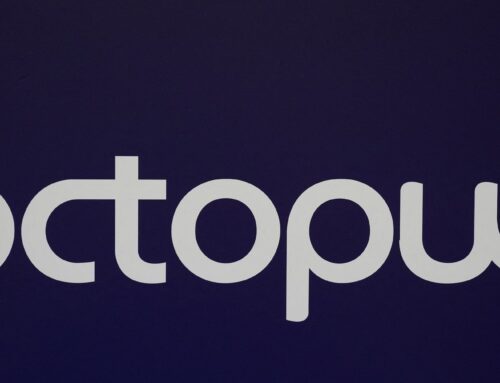FTC’s monopoly case hinges on Zuckerberg’s damaging texts, emails
April 14, 2025
FTC’s “entire” monopoly case rests on decade-old emails, Meta argued.
Starting the Federal Trade Commission (FTC) antitrust trial Monday with a bang, Daniel Matheson, the FTC’s lead litigator, flagged a “smoking gun”—a 2012 email where Mark Zuckerberg suggested that Facebook could buy Instagram to “neutralize a potential competitor,” The New York Times reported.
And in “another banger of an email from Zuckerberg,” Brendan Benedict, an antitrust expert monitoring the trial for Big Tech on Trial, posted on X that the Meta CEO wrote, “Messenger isn’t beating WhatsApp. Instagram was growing so much faster than us that we had to buy them for $1 billion… that’s not exactly killing it.”
These messages and others, the FTC hopes to convince the court, provide evidence that Zuckerberg runs Meta by the mantra “it’s better to buy than compete”—seemingly for more than a decade intent on growing the Facebook empire by killing off rivals, allegedly in violation of antitrust law. Another message from Zuckerberg exhibited at trial, Benedict noted on X, suggests Facebook tried to buy yet another rival, Snapchat, for $6 billion.
“We should probably prepare for a leak that we offered $6b… and all the negative [attention] that will come from that,” the Zuckerberg message said.
At the trial, Matheson suggested that “Meta broke the deal” that firms have in the US to compete to succeed, allegedly deciding “that competition was too hard, and it would be easier to buy out their rivals than to compete with them,” the NYT reported. Ultimately, it will be up to the FTC to prove that Meta couldn’t have achieved its dominance today without buying Instagram and WhatsApp (in 2012 and 2014 respectively), while legal experts told the NYT that it is “extremely rare” to unwind mergers approved so many years ago.
Later today, Zuckerberg will take the stand and testify for perhaps seven hours, likely being made to answer for these messages and more. According to the NYT, the FTC will present a paper trail of emails where Zuckerberg and other Meta executives make it clear that acquisitions were intended to remove threats to Facebook’s dominance in the market.
It’s apparent that Meta plans to argue that it doesn’t matter what Zuckerberg or other executives intended when pursuing acquisitions. In a pretrial brief, Meta argued that “the FTC’s case rests almost entirely on emails (many more than a decade old) allegedly expressing competitive concerns” but suggested that this is only “intent” evidence, “without any evidence of anticompetitive effects.”
FTC may force Meta to spin-off Instagram, WhatsApp
It is the FTC’s burden to show that Meta’s acquisitions harmed consumers and the market (and those harms outweigh any believable pro-competitive benefits alleged by Meta), but it remains to be seen whether Meta will devote ample time to testifying that “Mark Zuckerberg got it wrong” when describing his rationale for acquisitions, Big Tech on Trial noted.
Meta’s lead lawyer, Mark Hansen, told Law360 that “what people thought at Meta is not really what this case is.” (For those keeping track of who’s who in this case, Hansen apparently once was the boss of James Boasberg, the judge in the case, Big Tech on Trial reported.)
The social media company hopes to convince the court that the FTC’s case is political. So far, Meta has accused the FTC of shifting its market definition while willfully overlooking today’s competitive realities online, simply to punish a tech giant for its success.
In a blog Sunday, Meta’s chief legal officer, Jennifer Newstead, accused the FTC of lobbing a “weak case” that “ignores reality.” Meta insists that the FTC has “gerrymandered a fictitious market” to exclude Meta’s actual rivals, like TikTok, X, YouTube, or LinkedIn.
Boasberg will be scrutinizing the market definition, as well as alleged harms, and the FTC will potentially struggle to win him over on the merits of their case. Big Tech on Trial—which suggested that Meta’s acquisitions, if intended to kill off rivals, would be considered “a textbook violation of the antitrust laws”—noted that the court previously told the FTC that the agency had an “uphill climb” in proving its market definition. And because Meta’s social platforms are free, it’s harder to show direct evidence of consumer harms, experts have noted.
Still, for Meta, the stakes are high, as the FTC could pursue a breakup of the company, including requiring Meta to spinoff WhatsApp and Instagram. Losing Instagram would hit Meta’s revenue hard, as Instagram is supposed to bring in more than half of its US ad revenue in 2025, eMarketer forecasted last December.
The trial is expected to last eight weeks, but much of the most-anticipated testimony will come early. Facebook’s former chief operating officer, Sheryl Sandberg, as well as Kevin Systrom, co-founder of Instagram, are expected to testify this week.
All unsealed emails and exhibits will eventually be posted on a website jointly managed by the FTC and Meta, but Ars was not yet provided a link or timeline for when the public evidence will be posted online.
Meta mocks FTC’s “ad load theory”
The FTC is arguing that Meta overpaid to acquire Instagram and WhatsApp to maintain an alleged monopoly in the personal social networking market that includes rivals like Snapchat and MeWe, a social networking platform that brands itself as a privacy-focused Facebook alternative.
In opening arguments, the FTC alleged that once competition was eliminated, Meta then degraded the quality of its platforms by limiting user privacy and inundating users with ads.
Meta has defended its acquisitions by arguing that it has improved Instagram and WhatsApp. At trial, Meta’s lawyer Hansen made light of the FTC’s “ad load theory,” stirring laughter in the reportedly packed courtroom, Benedict posted on X.
“If you don’t like an ad, you scroll past it. It takes about a second,” Hansen said.
Meanwhile, Newstead, who reportedly attended opening arguments, argued in her blog that “Instagram and WhatsApp provide a model for what successful acquisitions can achieve: Meta has made Instagram and WhatsApp better, more reliable and more secure through billions of dollars and millions of hours of investment.”
By breaking up these acquisitions, Hansen argued, the FTC would be sending a strong message to startups that “would kill entrepreneurship” by seemingly taking mergers and acquisitions “off the table,” Benedict posted on X.
To defeat the FTC, Meta will likely attempt to broaden the market definition to include more rivals. In support of that, Meta has already pointed to the recent TikTok ban driving TikTok users to Instagram, which allegedly shows the platforms are interchangeable, despite the FTC differentiating TikTok as a video app.
The FTC will likely lean on Meta’s internal documents to show who Meta actually considers rivals. During opening arguments, for example, the FTC reportedly shared a Meta document showing that Meta itself has agreed with the FTC and differentiated Facebook as connecting “friends and family,” while “LinkedIn connects coworkers” and “Nextdoor connects neighbors.”
“Contemporaneous records reveal that Meta and other social media executives understood that users flock to different platforms for different purposes and that Facebook, Instagram, and WhatsApp were specifically designed to operate in a distinct submarket for family and friend connections,” the American Economic Liberties Project, which is partnering with Big Tech on Trial to monitoring the proceedings, said in a press statement.
But Newstead suggested that “evidence of fierce and increasing competition in the market has only grown in the four years since the FTC’s complaint was filed,” and Meta now “faces strong competition in a rapidly shifting tech landscape that includes American and foreign competitors.”
To emphasize the threats to US consumers and businesses, Newstead also invoked the supposed threat to America’s AI leadership if one of the country’s leading tech companies loses momentum at this key moment.
“It’s absurd that the FTC is trying to break up a great American company at the same time the Administration is trying to save Chinese-owned TikTok,” Newstead said. “And, it makes no sense for regulators to try and weaken US companies right at the moment we most need them to invest in winning the competition with China for leadership in AI.”
Trump’s FTC appears unlikely to back down
Zuckerberg has been criticized for his supposed last-ditch attempts to push the Trump administration to pause or toss the FTC’s case. Last month, the CEO visited Trump in the Oval Office to discuss a settlement, Politico reported, apparently worrying officials who don’t want Trump to bail out Meta.
On Monday, the FTC did not appear to be wavering, however, prompting alarm bells in the tech industry.
Patrick Hedger, the director of policy for NetChoice—a trade group that represents Meta and other Big Tech companies—warned that if the FTC undoes Meta’s acquisitions, it would harm innovation and competition while damaging trust in the FTC long-term.
“This bait-and-switch against Meta for acquisitions approved over 10 years ago in the fiercely competitive social media marketplace will have serious ripple effects not only for the US tech industry, but across all American businesses,” Hedger said.
Seemingly accusing Donald Trump’s FTC of pursuing Lina Khan’s alleged agenda against Big Tech, Hedger added that “with Meta at the forefront of open-source AI innovation and a global competitor, the outcome of this trial will have spillover into the entire economy. It will create a fear among businesses that making future, pro-competitive investments could be reversed due to political discontent—not the necessary evidence traditionally required for an anticompetitive claim.”
Big Tech on Trial noted that it’s possible that the FTC could “vote to settle, withdraw, or pause the case.” Last month, Trump fired the two Democrats, eliminating a 3–2 split and ensuring only Republicans are steering the agency for now.
But Trump’s FTC seems determined to proceed in attempts to disrupt Meta’s business. FTC Chair Andrew Ferguson told Fox Business Monday that “antitrust laws can help make sure that no private sector company gets so powerful that it affects our lives in ways that are really bad for all Americans,” and “that’s what this trial beginning today is all about.”
Search
RECENT PRESS RELEASES
Related Post




